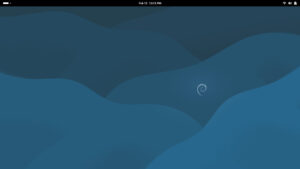After recently patching a security bug that Red Hat decided not to patch, the RHEL clone AlamaLinux has now returned support for many devices that are no longer supported by RHEL in beta releases of AlmaLinux 9.4 and 8.10.

An unexpected advantage of the decision AlmaLinux made last summer to no longer concentrate on being a line-by-line copy of Red Hat Enterprise Linux (which, until then had been AlmaLinux’s entire reason for being), while continuing to offer exactly the same functionality as RHEL, became evident earlier this month when the distro patched a security hole that Red Hat had decided not to fix in RHEL.
Back in the days of old, when Red Hat seemed good with distros such as Alma and Rocky cloning its code, that would have been a big no-no, because you can’t promise users that your code will be an exact copy of Red Hat’s code, then go adding patches and bug fixes that Red Hat’s not using.
Rocky Linux, which is still a bug-by-bug RHEL clone, still can’t do that, but Alma can. With its change of approach, which promises users that it will perform exactly the same as RHEL, with all of the same features that are accessed the same way, but without being a cut-and-past copy of RHEL’s codebase, Alma devs are free to patch a security hole that Red Hat is shrugging off, or to make other changes that don’t cause the distro to work any differently than RHEL.
As it turns out, this newfound ability to be exactly the same as Red Hat, except maybe with a little more, opens additional doors for the distro that goes beyond adding the occasional maverick security fix. Early this week, for example, the distro announced that with the releases of AlmaLinux 9.4 and 8.10, both of which saw beta releases this week, AlmaLinux would be differentiating itself from its upstream source even more.
“We’re re-adding support for a ton of old hardware that Red Hat has previously deprecated support for,” benny Vasquez, chairperson of the AlmaLinux Foundation that develops and maintains the project, told me in an email.
Similar to the recently added security patch, this move was a reaction to user requests.
“This move is made directly at the request of the AlmaLinux community,” the foundation said in a statement. “Everyone from industries across the world to hardware enthusiasts to the various labs and groups researching the very nature of our existence need to be able to keep their systems running updated operating systems without the added expense and hassle of being forced to migrate to new hardware. Supporting older hardware makes sense for the good of our community and the good of our planet.”
Vasquez told me that the final decision to return support for devices that had been deprecated by RHEL was made last month after some work was done in that direction at a hackathon. She says that going forward, the distro will be seeking feedback from users, and that she has gone so far as to post a thread in the AlmaLinux forums that seeks further input from users.
According to AlmaLinux, the previously disabled devices that are supported again in AlmaLinux 9.4 and 8.10 include:
- aacraid** – Dell PERC2, 2/Si, 3/Si, 3/Di, Adaptec Advanced Raid Products, HP NetRAID-4M, IBM ServeRAID & ICP SCSI
- be2iscsi** – Emulex OneConnectOpen-iSCSI for BladeEngine 2 and 3 adapters
- hpsa** – HP Smart Array Controller
- lpfc** – Emulex LightPulse Fibre Channel SCSI
- megaraid_sas** – Broadcom MegaRAID SAS
- mpt3sas** – LSI MPT Fusion SAS 3.0
- mptsas** – Fusion MPT SAS Host
- qla2xxx** – QLogic Fibre Channel HBA
- qla4xxx** – QLogic iSCSI HBA
AlmaLinux has suggested that depending on user input, additional devices might be re-added in the future.
The production ready version of AlmaLinux 9.4 will follow then release of RHEL 9.4 by about a week, according to Vasquez. RHEL 9.4 is scheduled to be released in mid-May.
Although no one at AlmaLinux has said so, I also wouldn’t be surprised if we don’t see the distro make additional changes that are “in addition to” what’s included in RHEL. At this point, I see absolutely no reason why AlmaLinux can’t develop and include additional features that have never been part of the RHEL landscape, so long as they continue to maintain 100% communicability with RHEL as a drop-in replacement.
In other words, don’t be surprised if AlmaLinux is on its way to becoming a drop-in RHEL replacement that does more than what it’s replacing.
Christine Hall has been a journalist since 1971. In 2001, she began writing a weekly consumer computer column and started covering Linux and FOSS in 2002 after making the switch to GNU/Linux. Follow her on Twitter: @BrideOfLinux








